Pledge Week is the culminating moment of the term, when your chapter will capitalize on the momentum you've built throughout the term by securing as many pledges as possible. Ultimately, success will come down to a single question: how many people did your chapter ask to take the pledge? Pledge Week is the time to finally make those asks.
Typically, chapters hold their Pledge Weeks toward the end of the term: they table every day of Pledge Week, make as many 1:1 pitches as possible, and hold an event or two at the beginning and/or end of the week. Pledge Weeks have historically accounted for about 80% of pledges chapters raise, and are an excellent device for motivating your team and giving them structure as the semester comes to a close.
Contents:
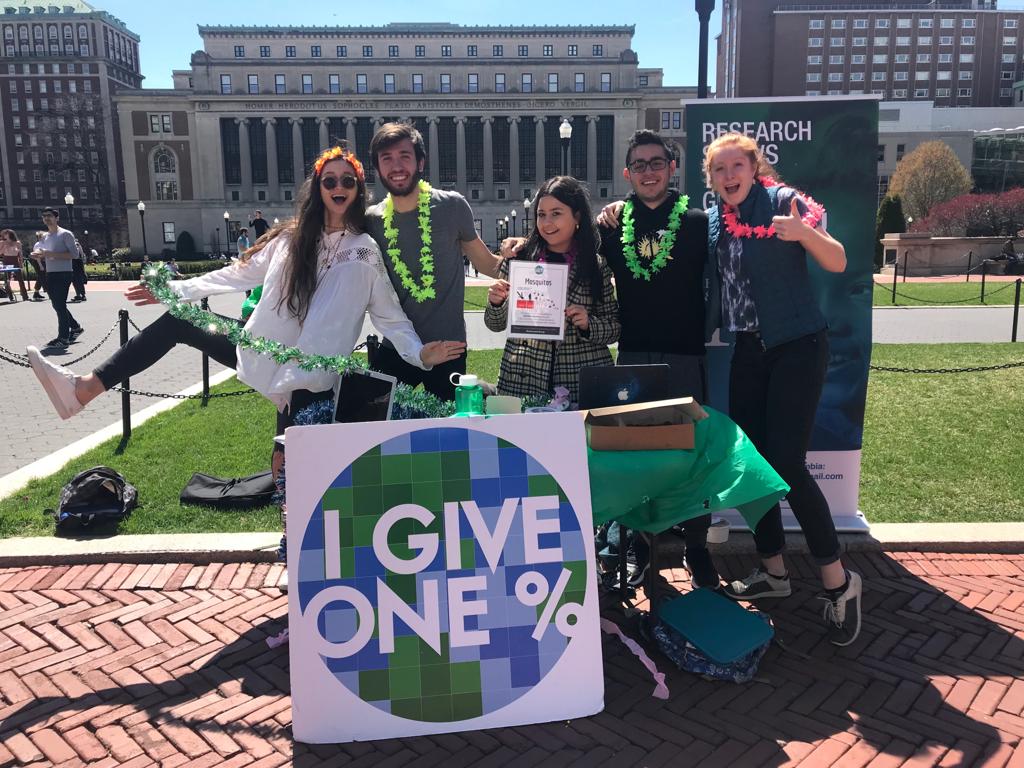
Pledge Week Strategy
After your chapter has garnered a number of leads throughout the semester, Pledge Week offers is a drive to have these leads take the pledge. To do so successfully requires some careful strategic planning. Pledge Week should occur after your Outreach phase, prior to your Leadership transition phase (around week 9 of 12-13 weeks).

Timing
Generally, Pledge Week is best held at least two weeks before final exams. This will help you avoid the finals rush, when students around campus will be too preoccupied with exams and papers to consider OFTW. Your team's engagement will also slow down once finals start, so holding Pledge Week a few weeks before that point will ensure that your team has the capacity to execute a successful end to the semester.
Internal Organizing
Pledge Week is as much an internal organizing tool as it is a marketing mechanism:
- It focuses your team’s energy and provides needed structure
- Some of your team -- or you! -- may be burnt out or discouraged by a long and challenging semester. Pledge Week is discrete and straightforward -- one week to get as many pledges as possible. This can help rally your team as you head toward the end of the term.
- If your team hasn't used a prospective pledge tracker yet, or you haven't followed up on it in some time, this is the time to do so. This will help break down a somewhat daunting task (Get 3 pledges) into manageable pieces (Invite these 10 people to these 2 events and ask them if they'd like to pledge).
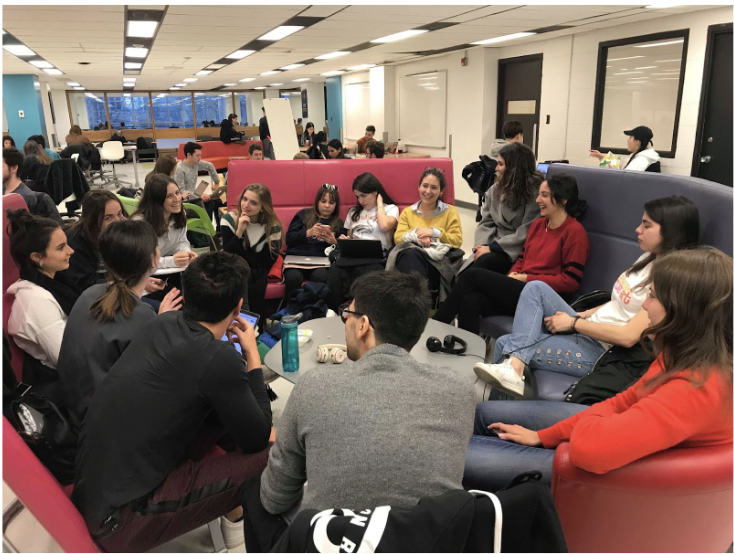
- It provides an excuse to start conversations about taking the pledge with friends
- “We’re in the middle of our Pledge Week and are trying to get 20 pledges… what do you think? Do you want to join us?”
- “We’re trying to beat [School] and need three more pledges -- what do you say? Do you want to take the pledge?”
- It provides chapter leaders with a reason to follow up with team members who haven’t taken the pledge yet.
- Often, some chapter members won't have taken the pledge earlier in the semester, due to oversight, missing a meeting, or something else. Be sure to check the raw data dashboard to see who from your team has yet to take the pledge, and reach out 1:1 to sign them up: "Hey, I was having a look through the data and saw that a few people haven't managed to take the pledge yet. Do you have some time this week for me to walk you through it?"
Programming
Pledge Week programming typically comprises some combination of the following:
- A preparatory / motivational meeting with your team the week before Pledge Week starts.
- This is a crucial moment to share your vision for Pledge Week with your team, establish clear expectations and roles, and set clear, ambitious goals for individual members and the chapter as a whole.
-
See this St Andrews deck for inspiration!
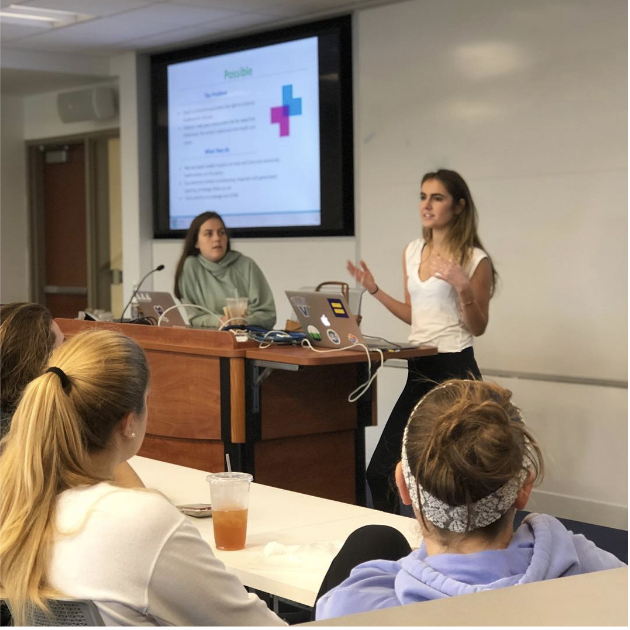
- Tabling every day of the week, 4-6 hours a day.
- Tabling is usually the core of Pledge Week. Be sure not to rely on random passersby who happen to stop at the table -- you must mobilize your chapter to invite their prospective pledgers down to the Pledge Week table. Driving potential pledgers to the table will yield much more success than talking to strangers passing by. Your tabling during Pledge Week will also be much more successful if you've done tabling throughout the semester!

- A social or celebratory event, at the beginning or end of the week
- This can double as your pledge engagement event: invite everyone who's taken the pledge or been involved with the chapter in the past to a social gathering, where you can share your chapter's progress and the impact your pledges will have and remind everyone why they got involved. You can encourage your members to bring a +1 who hasn't taken the pledge yet to help them warm these prospective pledgers up. Be sure to have a call to action ready at the event:
- A pledge station with Donational open for people to sign up there, or
- An ask to come down to the Pledge Week table, including a specific time and location.
- This can double as your pledge engagement event: invite everyone who's taken the pledge or been involved with the chapter in the past to a social gathering, where you can share your chapter's progress and the impact your pledges will have and remind everyone why they got involved. You can encourage your members to bring a +1 who hasn't taken the pledge yet to help them warm these prospective pledgers up. Be sure to have a call to action ready at the event:
- Giving Lunches throughout the week, or in the weeks leading up to Pledge Week
- Giving Lunches are a great way to move people through your pledge pipeline (see below). Consider running as many smaller Giving Lunches as possible -- ideally, each member runs one for their friends (with assistance from a more experienced member as needed).
Pledge Week Tactics
Before Pledge Week
- Organize your team
- Set individual goals: During your last board and Student Ambassador meetings prior to Pledge Week, have your team fill out or update their entries in whatever prospective pledge tracking mechanism your chapter is using. The prospective pledge tracker will help make the work feel more manageable to them -- all they have to do is reach out to a handful of names on a list and invite them to some Pledge Week programming.
- Set team goals: You should also set broader goals for the chapter as a whole, some of which will derive from the individual goals:
- How many pledges will you get during Pledge Week or by the end of the term? (This can be a modification of the goals you set at the beginning of the semester, depending on your performance up to Pledge Week.)
- Establish roles for Pledge Week: Depending on the complexity of your Pledge Week, you will need to fill a number of roles to execute your programming successfully.
- Tabling roles: using a spreadsheet, have people sign up for 1-hour shifts throughout Pledge Week. Set a clear expectation of how many shifts people will need to take to achieve full coverage .
-
-
- Event roles: If you're running events, be sure to assign relevant roles well in advance. In particular, your best pitchers should be prepared to pitch everyone as they leave the event. Be sure to have a few other members nearby at a pledge station with Donational open on their laptops.
-
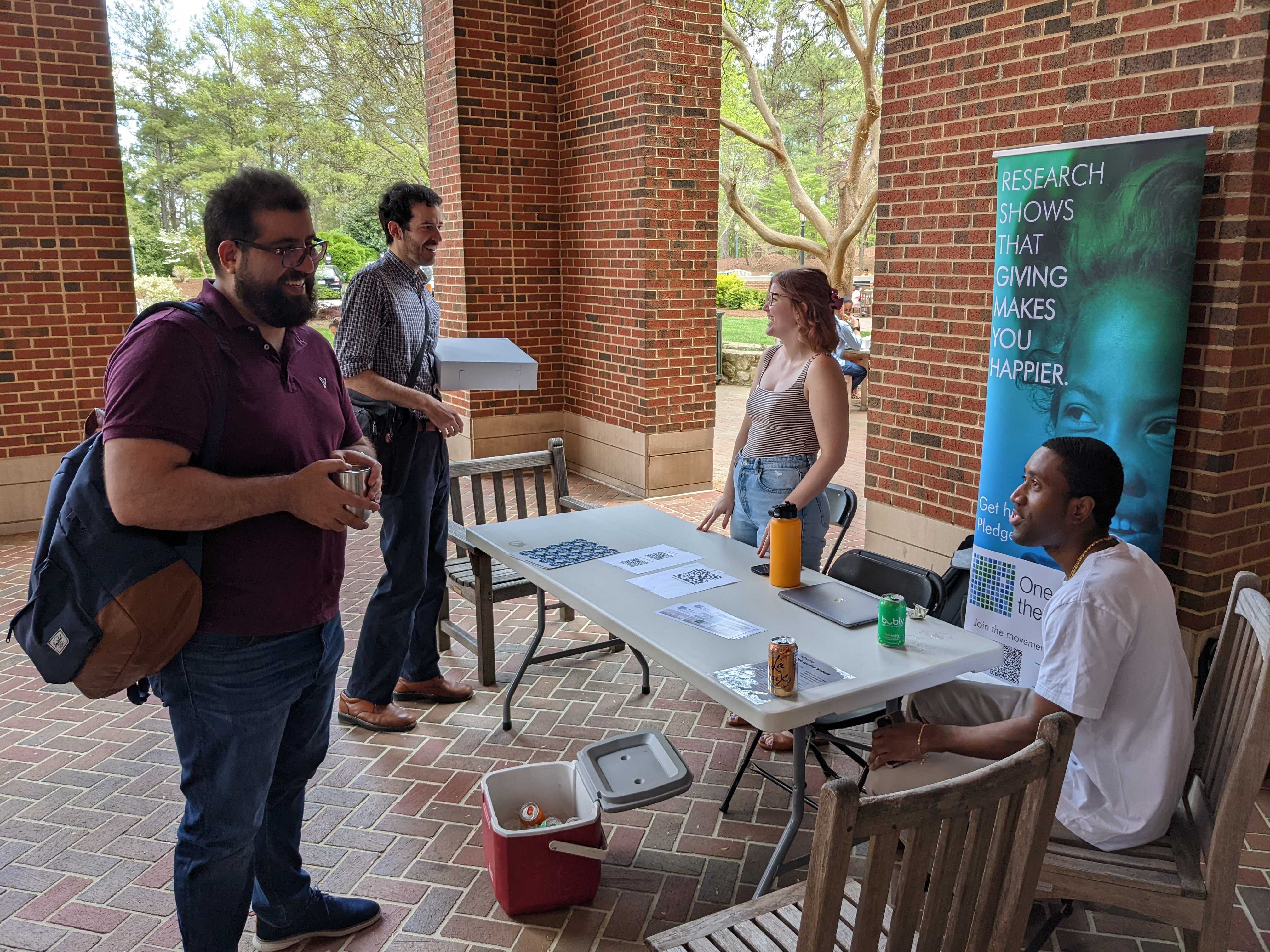
- Marketing
- Social media: Regular posting to Instagram and other platforms ahead of and during Pledge Week is crucial. Include summaries of your chapter's impact and pledges you've recruited during Pledge Week. Create a Facebook event page for your Pledge Week, and for any discrete events you're running, and have all your members invite their leads by Facebook.
-
Here are some pledge week social media templates you can use!
-
- Outreach to other clubs: Partnering with other clubs for events is an excellent strategy for reaching new audiences. If a partnership doesn't seem feasible, ask them to publicize your Pledge Week on their mailing lists or social media to give you exposure to new audiences.
- Mailing list: Send out your Pledge Week schedule at least a week in advance to your mailing list.
- Flyering: Put physical flyers up in popular areas of campus, including a clear call to action (e.g., attend our event) and a relevant QR code.
- Social media: Regular posting to Instagram and other platforms ahead of and during Pledge Week is crucial. Include summaries of your chapter's impact and pledges you've recruited during Pledge Week. Create a Facebook event page for your Pledge Week, and for any discrete events you're running, and have all your members invite their leads by Facebook.
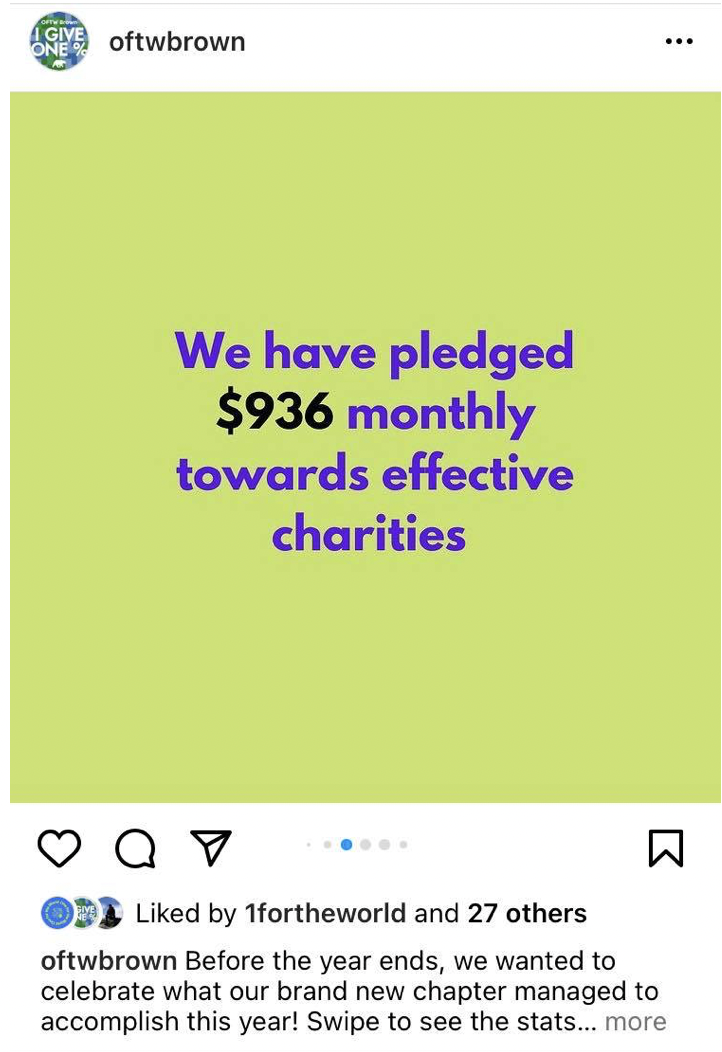
During Pledge Week
If your planning has gone well, Pledge Week should go on with little problem. However, chapter leadership will need to stay in constant contact with members to ensure that everyone fulfills the roles they've signed up for, and to keep them motivated.
- Keeping the team engaged: toward the end of the semester, your members -- and likely you too! -- will be a bit fatigued. It's important for Chapter Leaders to maintain an energetic presence
- Stay in constant contact with your chapter. This should include both daily updates on performance sent to the entire group ("Hey team! We got X pledges for $Y today -- great work! Shout out to [chapter member Z] for bringing home four of their leads today -- keep it up!!"), as well as 1:1 followup with your members to ask how they're doing .
- Make it fun! It's a good practice to include some sort of team social or bonding event at some point after Pledge Week, so that the team can relax and celebrate together. This could be a social or celebratory event open to non-members as listed above, or a distinct, informal opportunity for the chapter to socialize together.
-
See a social event guide here
After Pledge Week
Once Pledge Week is over, it's important to follow up with any potential pledgers or pledges, the broader campus population, and your team.
-
- Pledges: Thank them for taking the pledge and sharing the forecast impact of the pledges your chapter's recruited this year. Offer them an opportunity to get involved in the next semester -- for example, you could include your Student Ambassador application form.
- Event attendees: Thank them for coming to your event, and offer a call to action (i.e. schedule a coffee chat)
- Entire mailing list: Announce the results of your Pledge Week, thank any outgoing members, and give a preview of your programming in the next semester (this could be as simple as the date that applications will open, or mentioning that you'll table at the club fair).
- Internal followup: Have a final meeting with the team to debrief performance during Pledge Week, celebrate successes and consider areas for improvement, give individual shout-outs, and confirm roles for the next semester. It's important not to let the semester end without having any contact with the team post-Pledge Week -- this debrief meeting is helpful for encouraging people to return to their roles in the next semester.